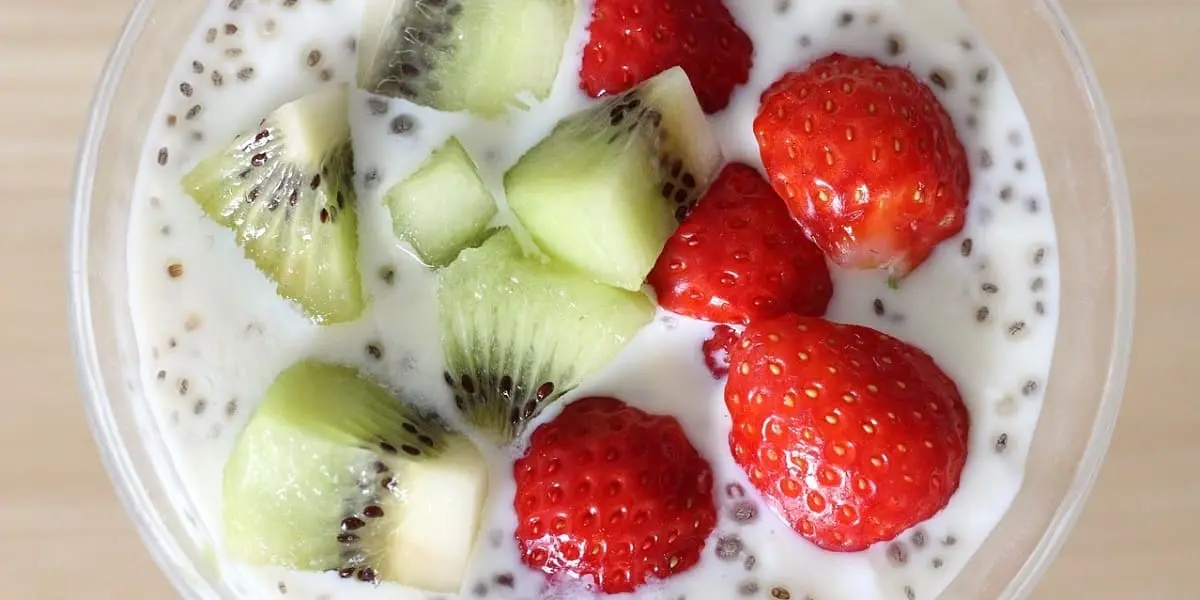Content
What are chia seeds?
Chia seeds, whose use dates back to the Aztec and Mayan civilizations, are much more than just a trendy superfood. Native to Mexico, these tiny seeds were prized for their energy and stamina, and were often eaten by warriors before battles.
In terms of nutritional composition, chia seeds are a treasure trove of benefits. Rich in protein, they are a complete plant source of essential amino acids. Their high omega-3 content, particularly in the form of alpha-linolenic acid (ALA), makes them one of the best plant sources of these essential fatty acids. They are also exceptionally rich in fiber, contributing to good digestion, and contain various essential nutrients such as calcium, magnesium and phosphorus.
What are the health benefits of chia seeds?
Impact on cardiovascular health
Chia seeds can play an important role in the prevention of cardiovascular disease. Thanks to their high omega-3 content, they help reduce LDL cholesterol and increase HDL cholesterol, thus promoting better heart health.
Weight and appetite management
These seeds are also ideal for weight management. Their high soluble fiber content enables them to absorb large quantities of water, which increases the feeling of satiety. They can therefore help control appetite and prevent cravings.
Effects on digestion and intestinal transit
Their fiber content also promotes regular intestinal transit, reducing constipation problems and contributing to optimal digestive health.
Benefits for bones, teeth and skin
Chia seeds are good for bones and teeth, thanks to their high calcium, magnesium and phosphorus content. They can also play a role in skin health, thanks to their essential fatty acids, which nourish the skin from within.
Impact on mental health and sleep
The omega-3 fatty acids contained in chia seeds can have positive effects on mental health, helping to reduce anxiety and depression. What’s more, chia seeds contain tryptophan, an amino acid that promotes better sleep.
Prevention of certain diseases
Studies indicate that chia seeds may play a preventive role against certain diseases thanks to their anti-inflammatory and antioxidant properties. This potentially includes the prevention of certain types of cancer, inflammatory diseases and metabolic disorders.
What are the myths and facts about chia seeds?
Despite their popularity, chia seeds are surrounded by many myths. One of these is the belief that chia seeds alone can bring about spectacular weight loss. Although they help to increase satiety, they are not a miracle cure for weight loss. Another myth is that they have magical health properties. Although they are nutritious, they must be consumed as part of a balanced diet to be truly beneficial.
Scientific research confirms that chia seeds are rich in fiber, omega-3 and protein. However, studies have not shown them to have any extraordinary effects on health. They are an excellent complement to a healthy diet, but do not replace other essential foods.
Are there any precautions to take or side effects to be aware of?
Due to their high omega-3 content, chia seeds may interact with certain drugs, particularly those affecting blood coagulation. They can also cause gastrointestinal disorders in some people when consumed in large quantities.
To consume chia seeds responsibly, it is advisable to incorporate them gradually into the diet, and to ensure that you are well hydrated before consuming them, to avoid any risk of intestinal obstruction.
How should chia seeds be consumed?
The recommended daily dose of chia seeds is around 1 to 2 tablespoons. It’s important not to exceed this amount to avoid side effects.
Chia seeds can be added to smoothies, yoghurts and cereals, or soaked in water or milk to form a gel. They can also be used as a thickener in sauces or as an egg substitute in vegan recipes.
Innovative recipes include chia pudding, homemade energy bars and chia seed breads. These recipes let you enjoy the benefits of chia seeds while savouring tasty dishes.
How do chia seeds compare with other superfoods?
Chia seeds are similar to other superfoods such as flax seeds or goji berries in terms of nutritional density. What sets them apart, however, is their high omega-3 and fiber content.
Chia seeds go well with fruits like berries, nuts and cereals like oats. They can also be combined with green vegetables in smoothies for optimal nutritional intake.
- Discover also
- How to detect high intellectual potential?
